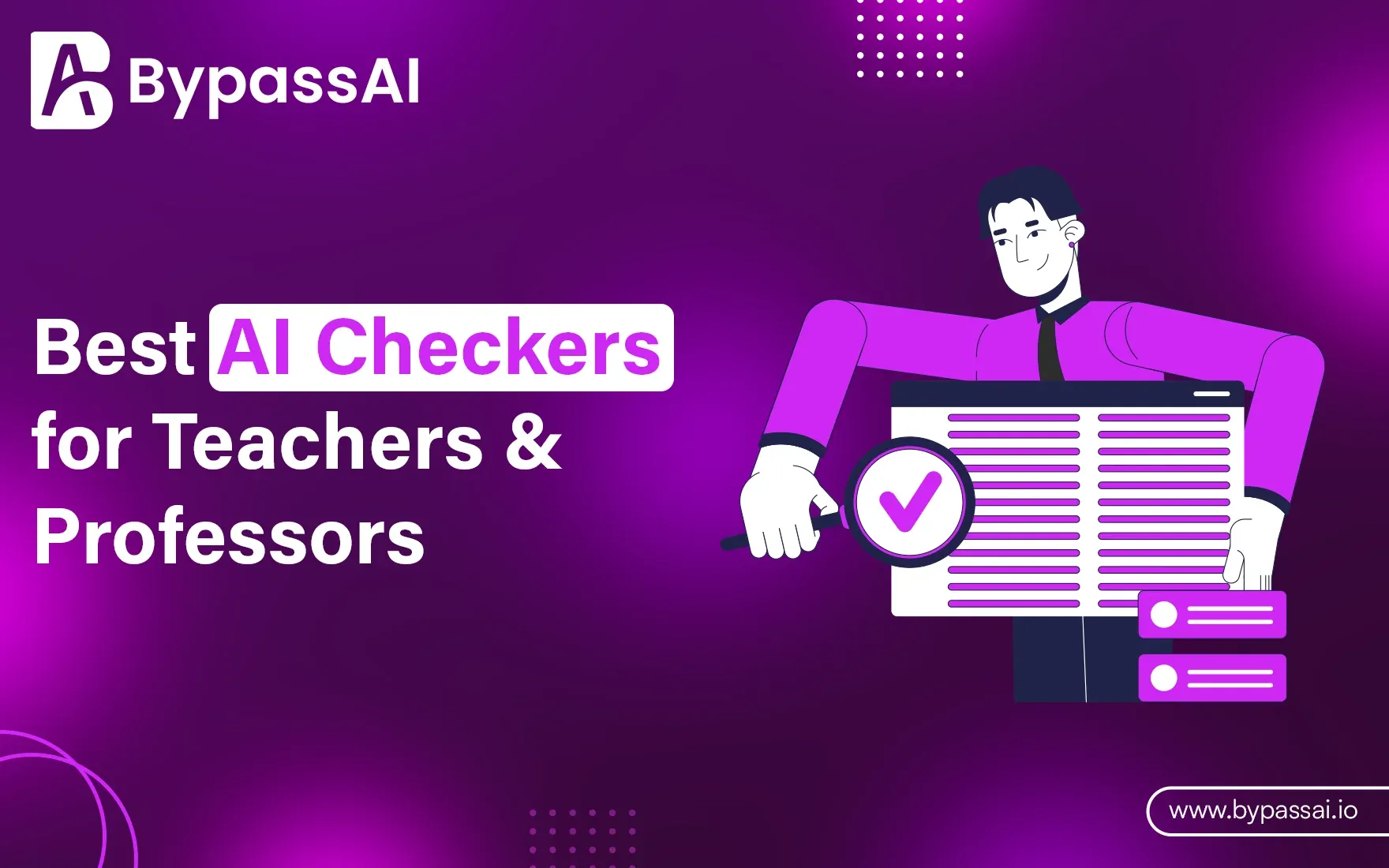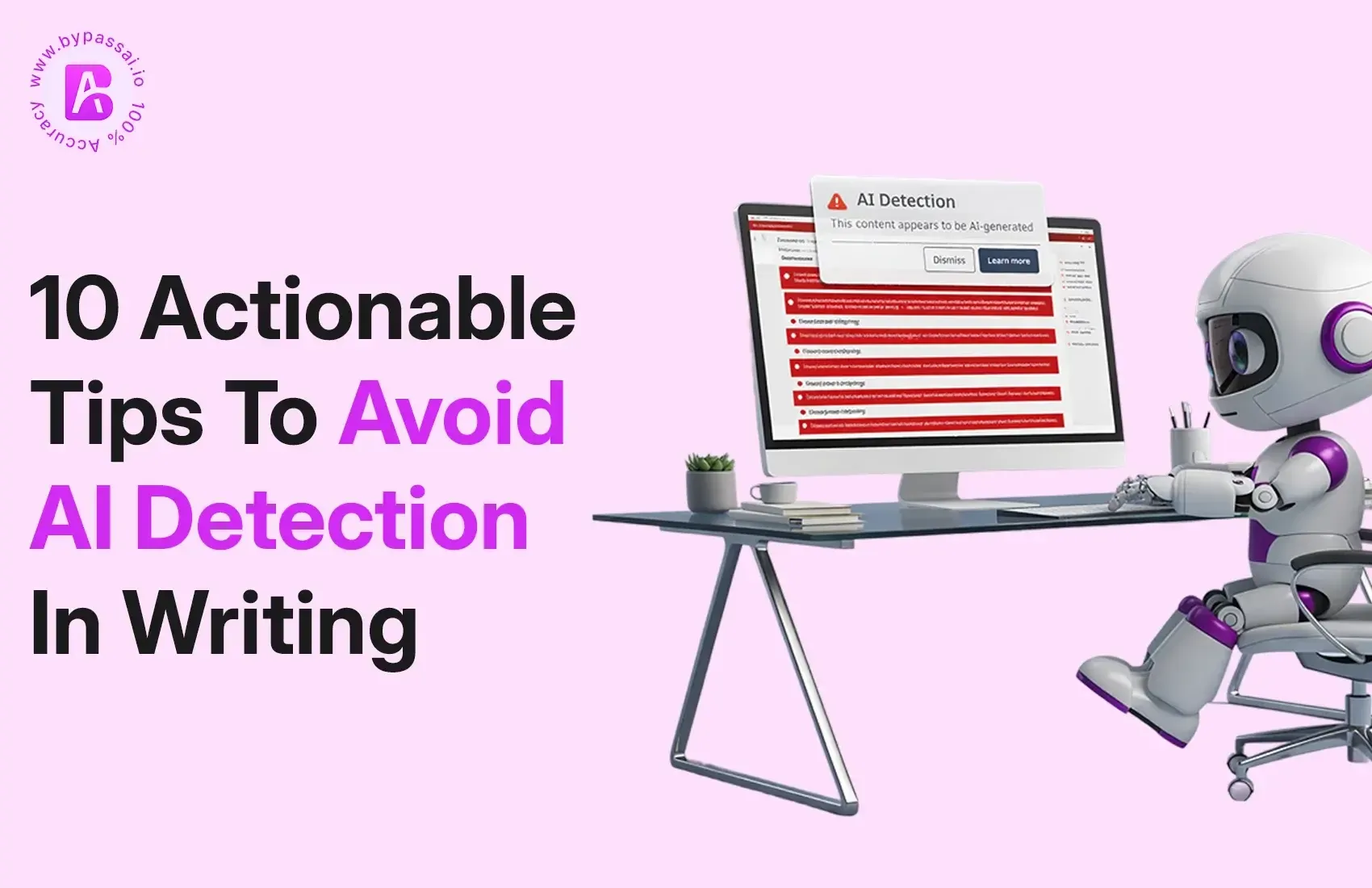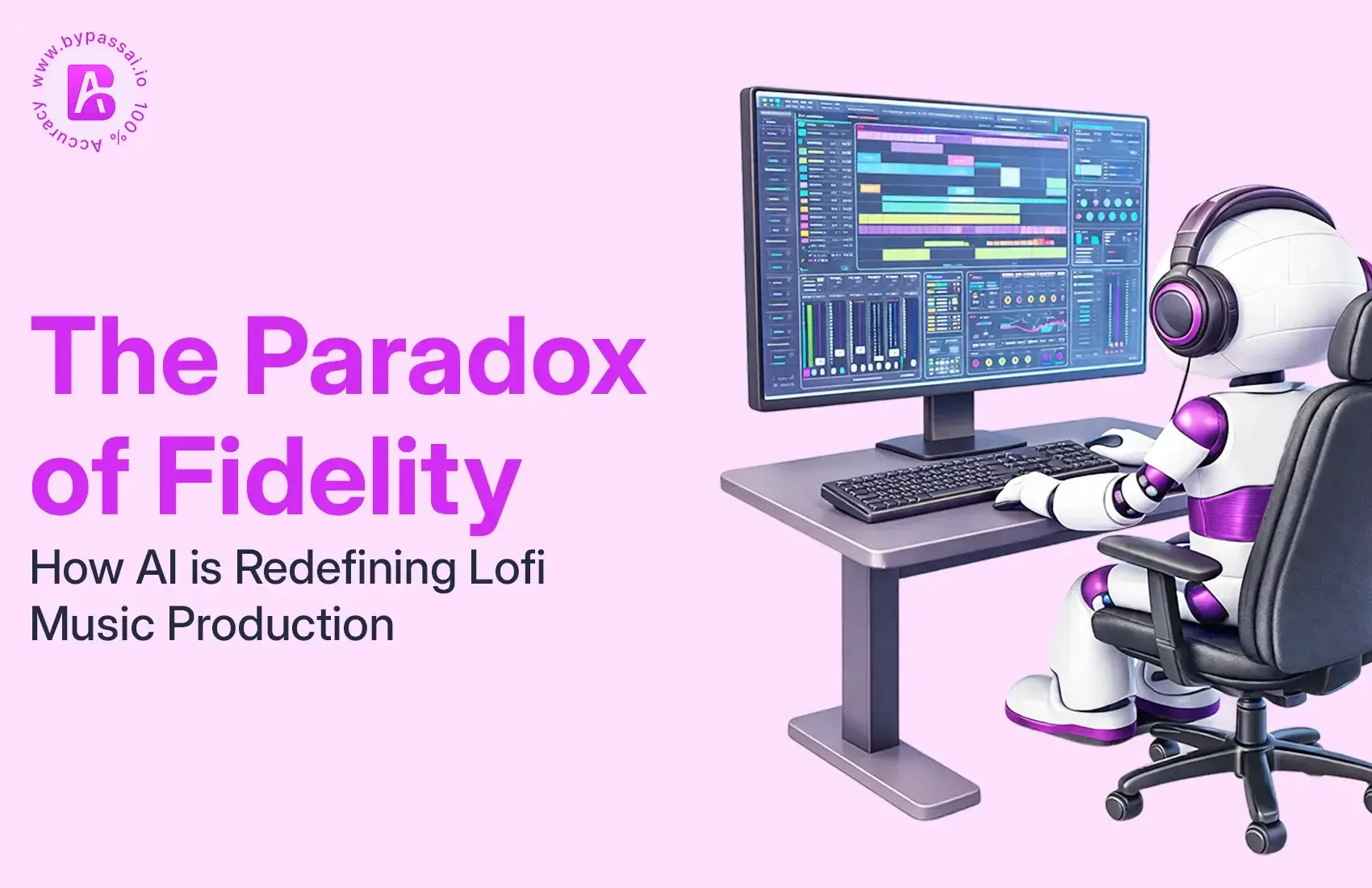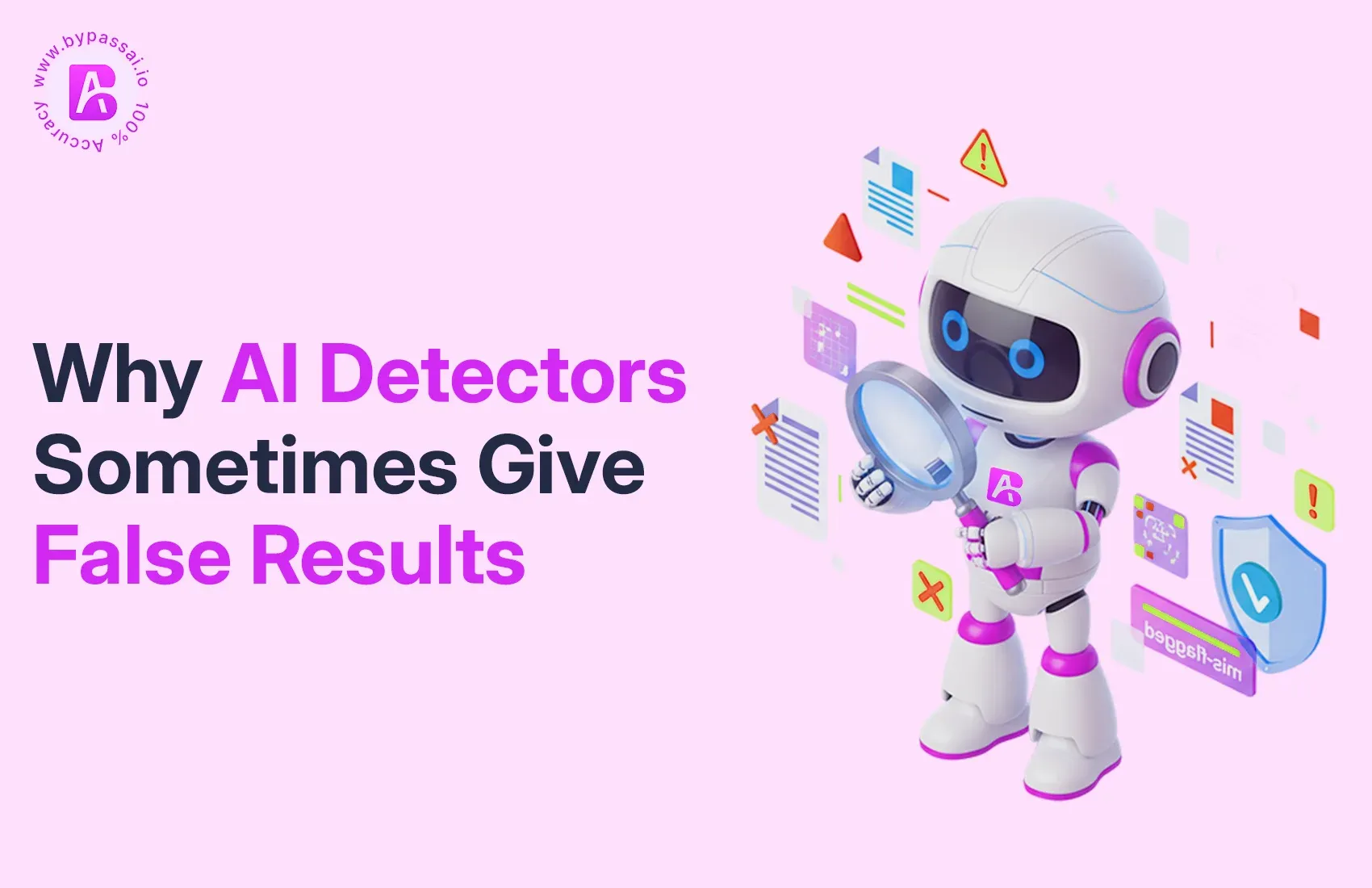Sign In
Welcome to Bypass AI! Sign in to continue your exploration of our platform with all its exciting features.
Forgot Password?
Don’t have an account ? Sign up
Sign Up
Embrace the Future with Bypass AI! Sign up now and let's rewrite the possibilities together.
You have an account ? Sign In
Enter OTP
We’ll send you an OTP on your registered email address
Back to Login
Forgot Password
We'll Send You An Email To Reset Your Password.
Back to Login
Enter OTP
We'll send you an email to reset your password.
Back to Login
Confirm Password
Please enter your new password.
TABLE OF CONTENTS
Quick Summary
How Does AI Writing Detection Work?
Benefits of Using AI in Education
What Are AI Checker Tools for Teachers, and How Can They Help?
Top 10 AI Checker Tools for Teachers & Professors
Factors to Consider When Choosing AI Checker Tools
Conclusion
FAQ
Technology is innovating the field of education, and teachers are increasingly embracing AI resources. These handy tools help educators craft vibrant presentations, design captivating lesson plans, generate interactive handouts and quizzes, and expedite grading for their pupils. In this blog discussion, we're delving into an exciting lineup of 10 AI checkers for teachers. These top-tier resources empower teachers to enrich their instructional materials, save valuable time and elevate their teaching practices.
Quick Summary
In this post, we pick up 10 AI detectors for teachers. They're renowned for pinpointing AI-created materials to uphold scholarly honesty. Services such as CopyLeaks, GPTZero, and BypassAI IO shine with their spot-on results and streamlined navigation. Selecting the best device hinges on its precision, simplicity, and price tag. Such aids allow educators to reclaim time and elevate their instruction methods.
How Does AI Writing Detection Work?
Well, let’s dive a little deeper into what’s really going on under the hood.
In short, these tools have several functions.
But there are two main assumptions here:
- Language analysis: The analysis of sentence structure for meaning or repetition
- Comparative analysis: A comparison of training data sets, searching for similarity to previously identified patterns.
These were some of the standard techniques used in training a model to recognize AI content using the above two concepts.
Benefits of Using AI in Education

1. Individualized lessons
AI allows learning materials to be tailored to each student. This means everyone can learn at their own pace, strengthen their weaknesses and improve in the areas where they show the most strength.
2. Business efficiency
Educational institutions can use AI to automate administrative tasks, allowing teachers to focus more on teaching and less on staffing.
3. Availability of resources
AI gives students access to high-quality educational resources regardless of economic status or geography.
4. Continued research
AI can assess each student’s progress and provide real-time feedback, helping them identify strengths and areas for improvement.
What Are AI Checker Tools for Teachers, and How Can They Help?
Teacher's AI checker tools are cutting-edge programs built to recognize text produced by AI. This includes papers and tasks. They employ natural language processing (NLP) and a range of AI tech to highlight pieces of writing that may not be genuine or penned by a human.
These resources are more than programs. They help uphold academic honesty.These systems allow a speedy review of student work for clues of AI-produced content, confirming that each assignment showcases authentic dedication and understanding.
Applying these detection tools calls for a careful strategy. Remember, they are meant to supplement, not substitute, classic ways of evaluation and interaction with students' tasks.
Methods like evaluating various assignment types and including self-reflective activities are important partners in technological progress. This mix helps respect individual student expression, maintaining the integrity and creativity standards in their writing.
Also read this article : Best AI Content Detection Tools
Top 10 AI Checker Tools for Teachers & Professors
1) Bypassai IO
Bypassai IO positions itself as a robust AI tool, targeted at educators like teachers and professors. Its function revolves around inspecting student submissions. It then offers an evaluation of the possibility that an AI system created the content.
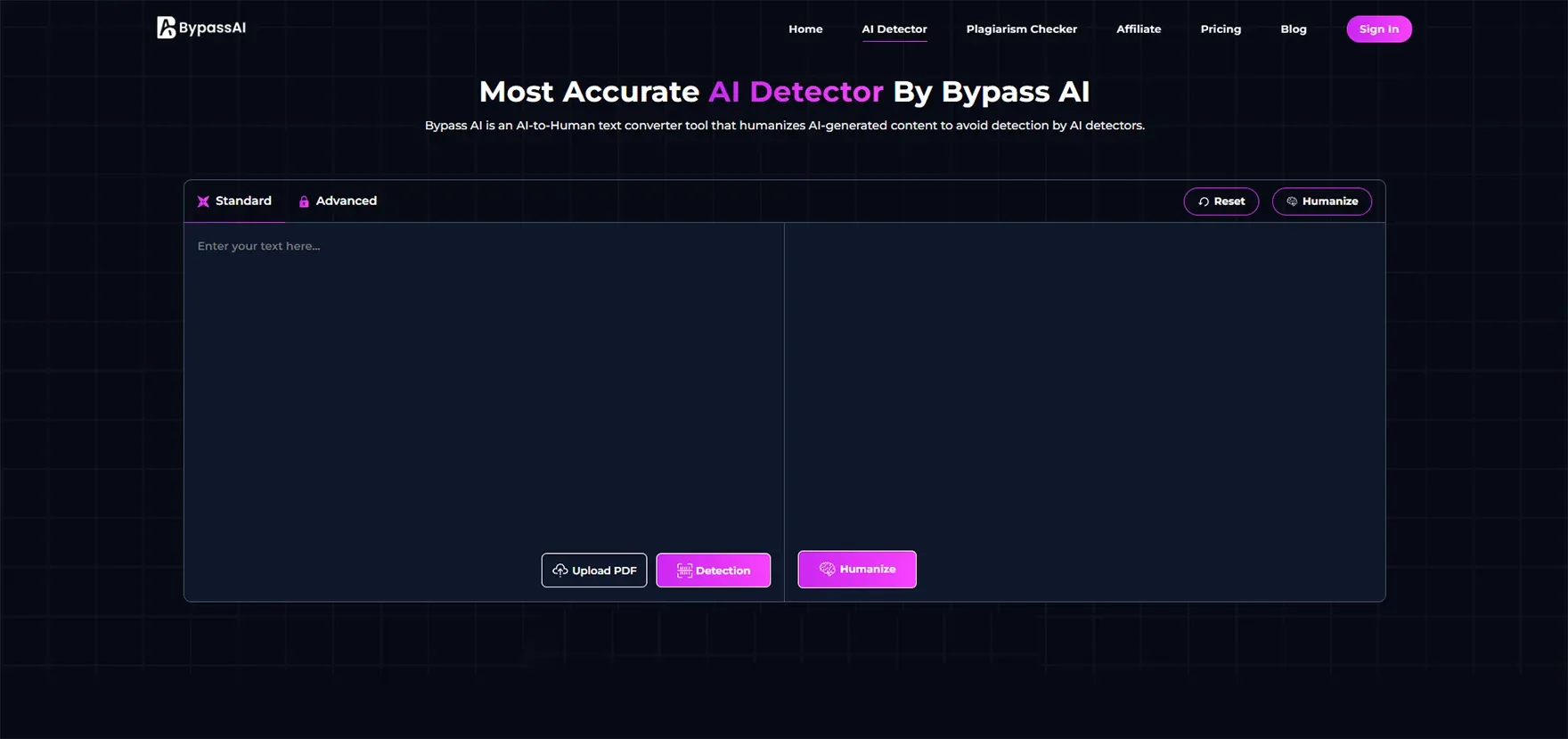
2) Copyleaks AI Content Detector
CopyLeaks is a widely advertised AI detector known for its impressive 99.1% accuracy in spotting AI-produced content. Not only educators, but professionals ranging from legal to marketing sectors can also make use of this tool. The platform's user-friendly interface is convenient for online use. Just create a free account to boost the limit of daily checks. Besides, you have an option to download the free CopyLeaks Google Chrome extension to examine social media posts or websites.
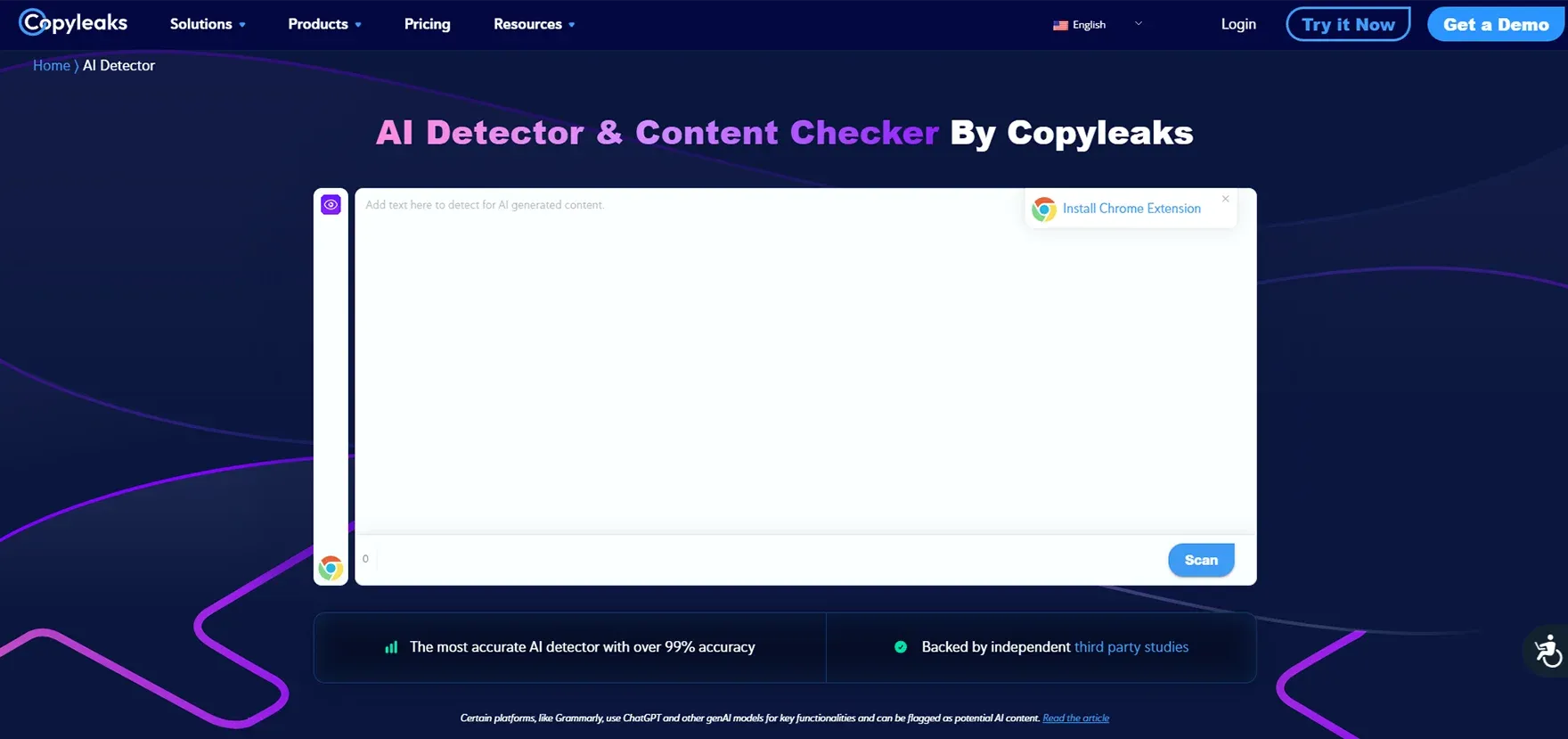
3) Crossplag
Crossplag thinks of itself as an all-around gadget, aiming to "make plagiarism inspection accessible to all" with budget-friendly costs. Truly, the service they offer to teachers boasts "fee-per-use rates that begin at just $1 per student per year." Written works are assessed and rated with a margin of certainty percentage. This estimates how likely it is that AI made the text.
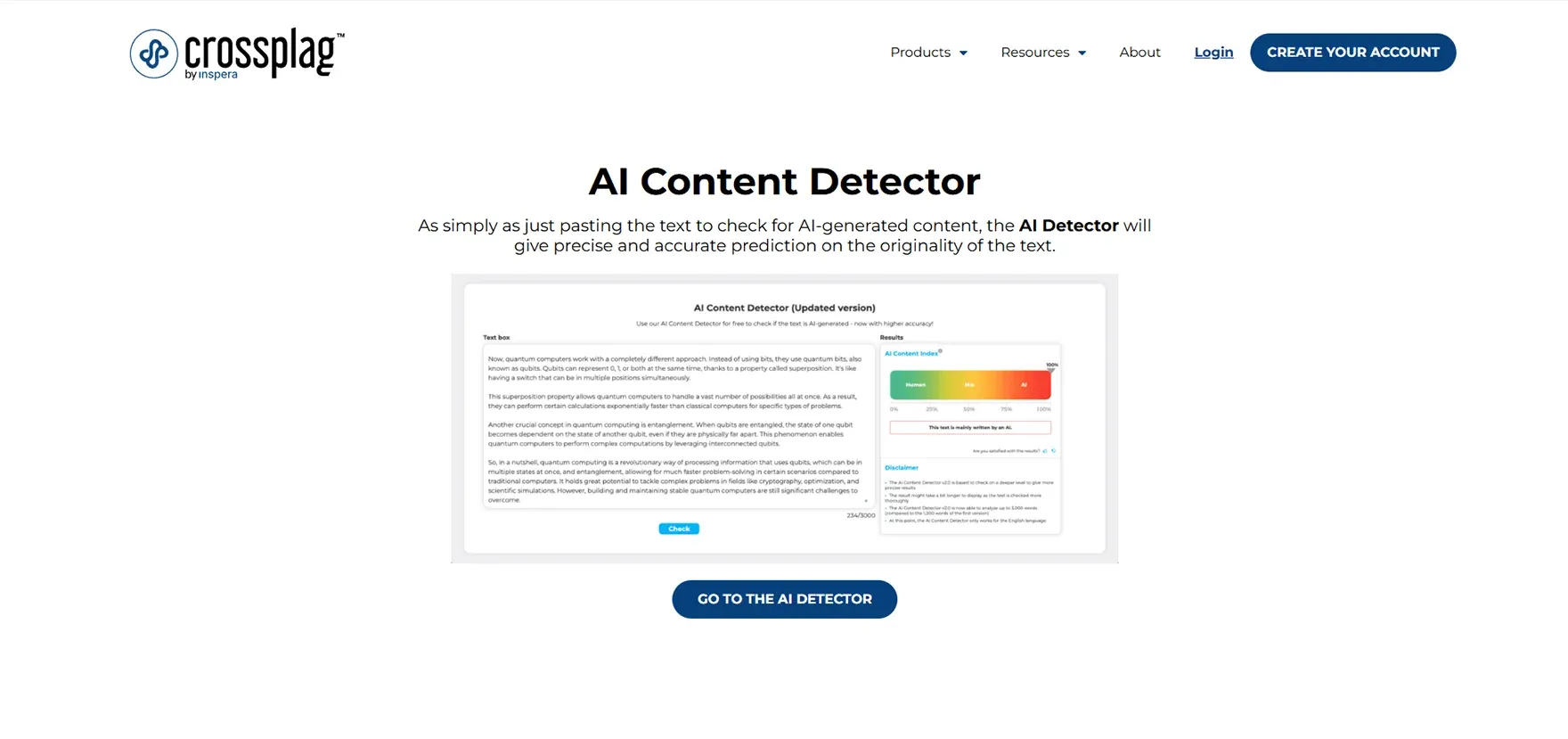
4) GPTZero
GPTZero, a chatbot detector built just for ChatGPT, zeroes in on text complexity, sentence length, and diverse syntax. It's an English-only tool, examining sentences, paragraphs, and even entire documents for possible AI interference. And it's reliable, because it hits 98% accuracy rates. Instead of spitting out numbers that suggest if AI wrote a piece, GPTZero deciphers and explains the results.
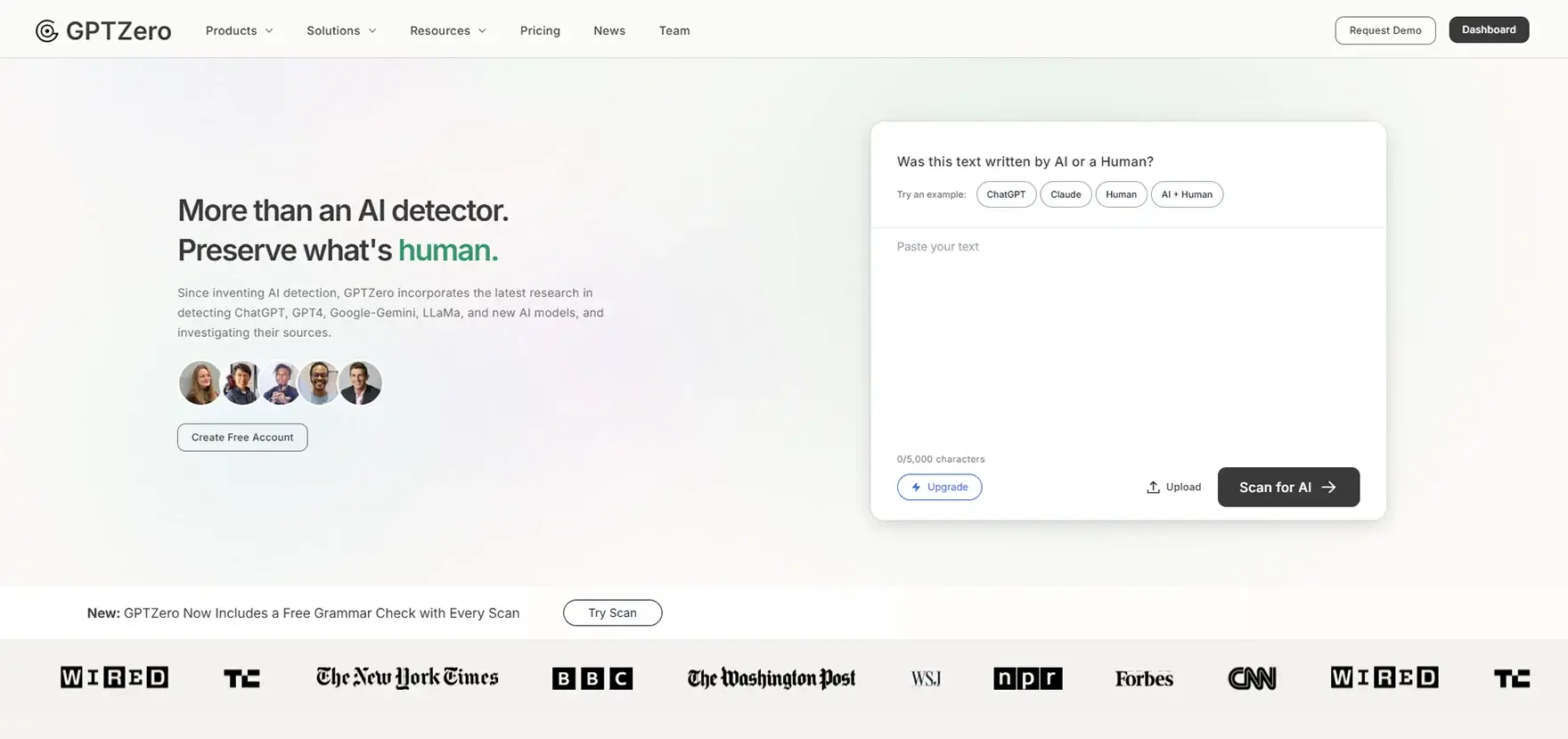
5) Hugging Face OpenAI Detector
The Hugging Face OpenAI Detector has a funny name, but it's serious software. It's wide open and costs nothing. Right now, it can't spot ChatGPT-3 or GPT-3.5. But it leans on the GPT-2 output detection model. It's likely to grow. This minor flaw makes it a supportive tool to use with other AI detectors.
6) Giant Language Model Test Room
Similar to the previous model, the Giant Language Model Test Room (GLTR) can now spot GPT-2. The brains behind GLTR are the MIT-IBM Watson AI Lab and the Harvard Natural Language Processing Group. It works by guessing the upcoming word in a series, spotting sentences that are oddly flawless. This might be a hint it's AI-written.
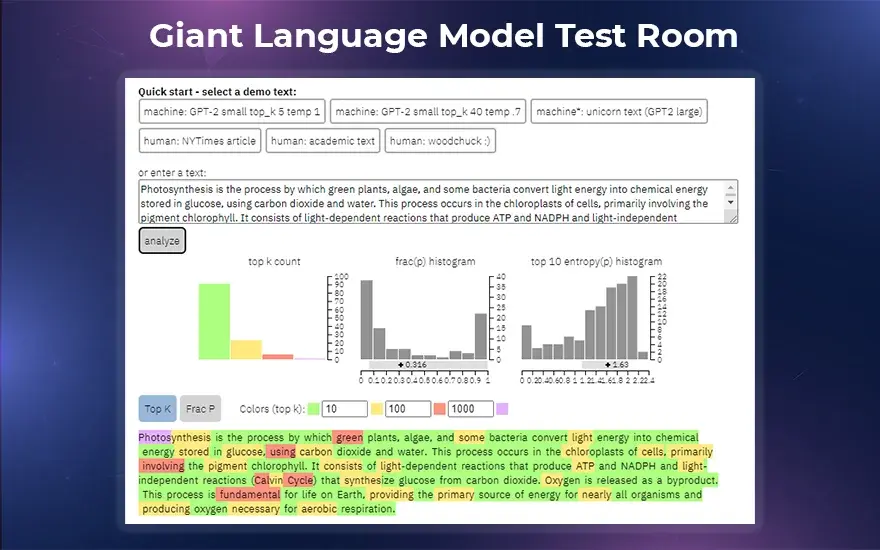
7) OpenAI’s AI Text Classifier
In January 2023, OpenAI, the creators of ChatGPT, introduced a no-charge AI Text Classifier. The tool gave five levels of response to possible AI-produced texts (from very unlikely to likely). But, by July, OpenAI discontinued it, citing poor accuracy levels. Why keep it on the radar? It's expected to return. The creators are using feedback to improve and researching better methods for text origin identification. But, there's a key point - none of these AI detection tools are foolproof. They shouldn’t be the only resource for making decisions. Recognizing, studying, intervening, and correcting start and finish with prepared teachers in the classroom.
8) Passed AI Detection & Plagiarism
Passed AI is a variation of the Originality AI checker, made for those in content marketing. Yet, Passed AI is made with teachers in mind. It's been educated in the ways of GPT-J, GPT-NEO, GPT-3, and GPT-4. A handy Google Chrome extension allows you to examine documents directly in Google Drive, no download needed. This bonus helps you view a Google Doc's creation timeline. It lets you see how each document took shape, giving a behind-the-scenes look into your students’ creative process.
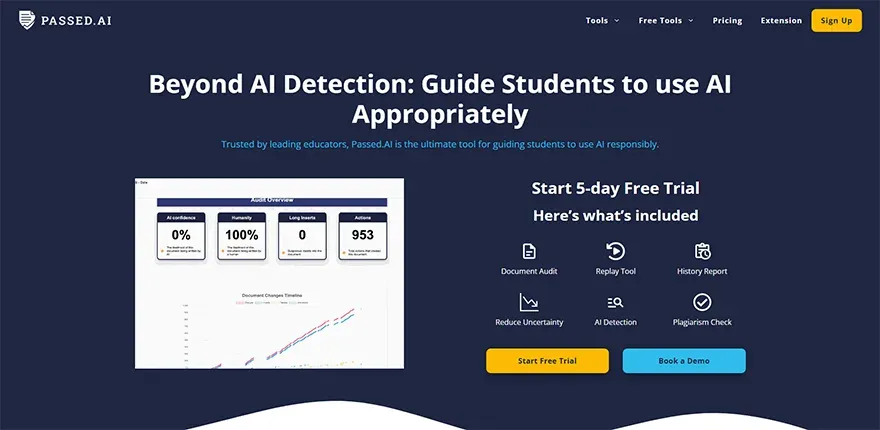
9) Turnitin AI Detection
Turnitin is widely known among teachers and students for its powerful plagiarism checking tools. It's a common name in classrooms across the nation, where papers are often submitted through it. Now, TurnItIn has added an AI writing detector to its services. However, only schools and universities can get this, they need to subscribe. Students can use the tool for handing in assignments, but not separately.
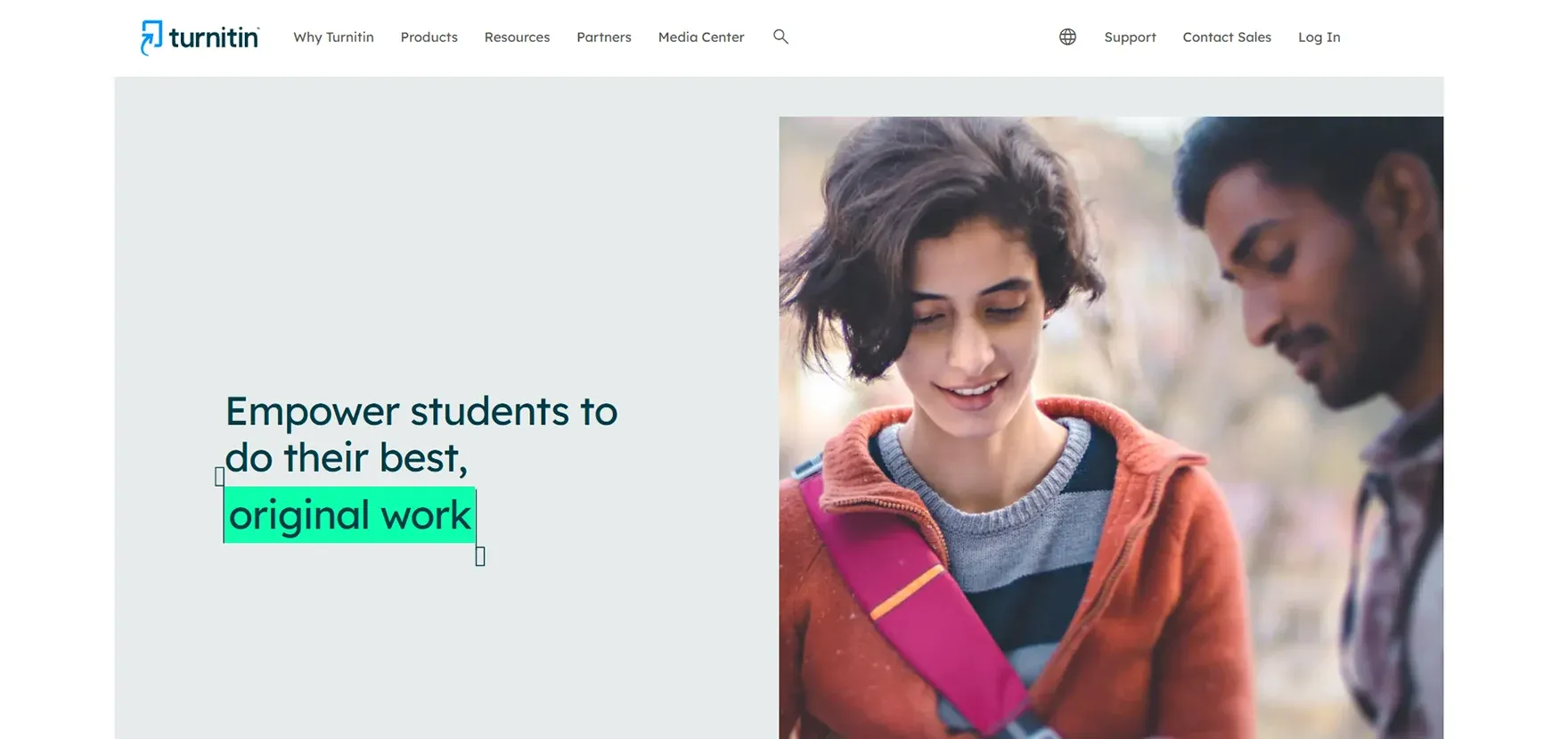
10) Winston AI Detection
Winston AI is a tech tool built for teachers. It has the power to figure out if a human wrote a document with almost perfect precision. It uses a special trick called OCR. This OCR trick lets it read handwriting. So, it works really well for stuff like the work of young students or those hard-to-read handwritten tests.
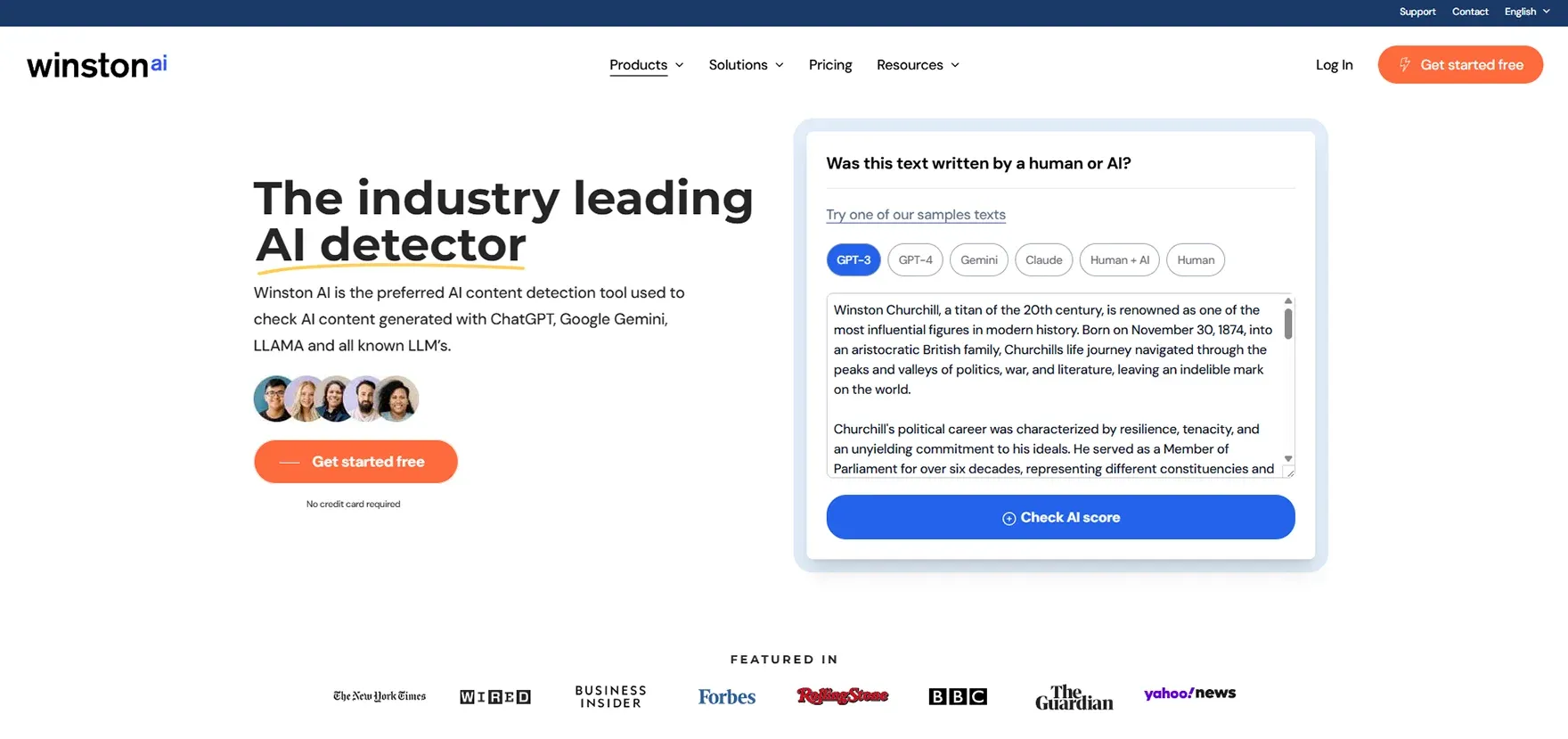
Factors to Consider When Choosing AI Checker Tools
Finding the perfect AI checker tool isn't just a quick peek at options. It should snugly fit your requirements, spotting all tiny aspects, but with the simplicity of your go-to app.
1. Accuracy
Accuracy is key in AI object recognition tools. This is important because you want to capture as many AI-created features as possible without falsely accusing students of not doing their work. However, remember that there is no 100% reliable AI tester. Watch for accuracy, though, because these numbers speak volumes. They argue that when you use these tools, you are working with some of the most reliable technologies available to analyze text AI. It’s about trust—between you, the tool, and ultimately, your students.
2. Ease of use
AI checkers can be tricky. Some need loads of time to figure out. Trust me, amidst bustling school life, you really can't waste time on this! Hunt for AI tools that are easy to grasp, with easy-to-follow guidance and clean design. The top ones? Just a couple of clicks, and you're done. Uploading texts or pasting matter directly into a box on-screen is a doodle. The results? They pop up fast. Forget tiresome clicking through a zillion pages!
3. Cost
We all understand this is crucial for educators. You don't want to splurge unnecessarily, correct? It's comforting to know diverse options exist to accommodate various budgets. Opting to use paid AI scrutiny tools means part of the budget goes that way. But ponder the benefits it brings: assurance and extra time to concentrate on instruction rather than anxiety about unnoticed AI-generated texts.
Conclusion
As we embark in this new journey in education technology, AI checker gear is right here to aid and not update traditional teaching. Teachers can depend upon these toolkits to guarantee authenticity and keep instructional integrity in scholar submissions. Moreover, these equipment offers teachers more time to recognise and enhancing the first-class of their instructions and address individual scholar needs.
To sum up, whilst integrating AI equipment in coaching, the key is selecting the right one based on its precision, ease of use, and price-effectiveness. These tools have to complement, no longer update, the worthwhile human contact in education. Moving forward, the adoption of those sources will hold to conform, making sure the balance between technology and human interplay in school rooms.
FAQ
1. What is an AI checker tool?
AI checker gear is superior software designed to hit upon text generated by synthetic intelligence. They use herbal language processing (NLP) and different AI technology to pick out and flag AI-generated content material in student assignments, making sure educational integrity.
2. How correct is AI checker equipment?
The accuracy of AI checker gear varies. Leading tools like CopyLeaks and GPTZero boast high accuracy rates (as much as ninety nine.1%). However, no device is one hundred% reliable, and fake positives or negatives can nonetheless arise.
3. Are AI checker tools clean to apply?
Yes, many AI checker equipment are designed with user-pleasant interfaces. Tools like CopyLeaks and Passed.AI provide easy and intuitive systems that permit customers to add files without problems and obtain quick outcomes.
4. Can college students use AI checker gear?
While some equipment is to be used for individual use, many, like Turnitin's AI detection, are generally handy through institutional subscriptions. Students can get admission to these tools through their schools or universities.
5. How a good deal do AI checker tools free?
The fee of AI checker equipment varies extensively. Some equipment provides unfastened versions with restrained features, while others, like Crossplag, provide pay-in-keeping with-use rates as low as $1 in step with pupil in line with 12 months. Institutions regularly join complete tools like Turnitin.

